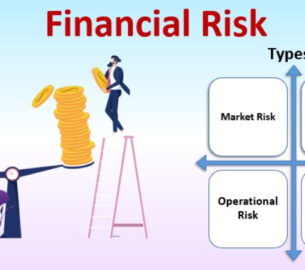There are many types of financing options available. These include seed capital, investing your own money into a project you believe will succeed in the future, and capital financing via the stock market.
Venture Capital Financing is a key part of the funding process. it is a type of private equity financing where investors lend funds to small businesses and start-ups that they believe will prosper over the long term.
The pros of VFC ( Venture Capital Financing)
1. A Large Number Of Equity Funds:
To successfully launch a new product or service, a small business must have a substantial amount of capital.
2. Expertise In Business:
A venture capitalist may provide financial expertise and offer business experience in management positions or guiding experiences. In addition to investing in a company, venture capitalists can also play a crucial role in the success and growth of a company by acting as a consultant.
3. Additional Resources:
Venture capitalists may offer advice in areas relating to tax, legal, and personal.
4. Connections In The Community:
These connections can be very beneficial for the business.
5.Venture Capitalists Assist Companies In Growing Faster:
Without venture capitalists’ funds, the company will rely on steady revenue and secure financial security.
6.The money is not repaid.
Venture capitalists can technically be considered gambling when they invest in your company and you. They don’t have to return the money if it is successful. However, if it fails, they will suffer significant losses.
7. Risk Management:
New businesses are at high risk of failure in the first year. a knowledgeable official may be able to help reduce the chance of misinterpretation.
8. Refuse To Pledge Your Property:
Unlike a bank loan, raising capital through a venture capitalist does not require the pledge of personal assets to secure the funds.
9.Public Relations Are Improved:
Venture capital companies often have a team of public relations professionals that work closely with the media. they are interested in getting publicity.
Venture Capital Financing: The Cons
1.The Founder Loses Control And Autonomy:
It is one of the most important aspects of funds the business. Venture capitalists give funds to businesses in return for ownership.
2. Long And Complex Procedure:
Raising capital from venture capitalists is a lengthy and tedious process. Venture capitalists would do all the research about the company and its owners.
3. Risky Financing:
Venture capitalists are a risky way to raise capital. Venture capitalist funding isn’t required for every start-up or small company to be successful.
4. An investment company will only acquire businesses if its owners are willing to sell more than 50% of their shares in the company. The level of diluted ownership can lead to the owners losing control over the management of the company.
5. Stability Of The Business For Growth:
Venture capitalists may not provide funding if they can’t generate consistent, profitable earnings and revenue. You might end up spending more money on production or hiring more people.
6. Structure For Formative Reporting:
Whenever a venture capitalist provides funding to a start-up, the founders have a duty of accountability toward the venture capitalist and the venture capitalist’s investors.
7. The Company Is Expected To Grow And Expand Quickly:
The company is expected to expand exponentially after receiving venture capitalist funds.
8. No Leverage To Negotiate:
Because most of the funding requirements for start-ups or small businesses are met through funding, founders have little negotiating power. Start-ups don’t have the resources to negotiate in most negotiations.
Conclusion:
Despite all the negative aspects of raising capital, venture capitalists are preferred to raise capital for small businesses and start-ups. There are also many benefits to it, even if you consider the risks and disadvantages.












